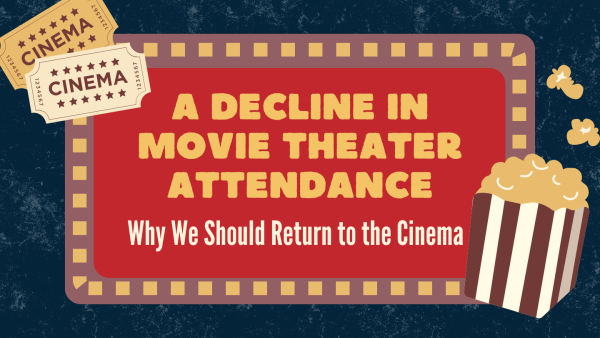Disney: The most magical…monopoly?
Photo by Elizabeth Niemiec
As Disney acquires more and more are they becoming too big for their own good?
When one thinks of the Walt Disney Company, images of Cinderella’s castle, Mickey Mouse, and feelings of overwhelming nostalgia may wash over you. People like being happy, and Disney makes people happy. Millions flock to movie theaters every time a new (or perhaps, more recently: remake) Disney movie premieres.
On this premise, it’s no surprise that Disney dominates the box office. However, it’s a little concerning just how much Disney has come to lead the movie industry.
Back in 2008, Disney held just below 10% of box office sales. In 2019, Disney held the top seven (or eight if you include Sony’s Spider-Man Far From Home ) highest grossing movies, and 33% of all box office sales. In just over 10 years, how could Disney’s revenues jump a substantial 23%?
In 2018, Disney held 26% of the box office revenue with the release of ten films. It’s highest competitor, Warner Bros held 16.3% after releasing 38 movies. In the past two or three years, Disney has been focusing on cashing in on remakes (you can expect Mulan, Cruella, The Little Mermaid and more coming to a theater near you!) and sequels, knowing full well that people are more likely to see a movie that is familiar to them.
Scott Mendelson of Forbes told Digital Spy that moviegoers are more likely to frequent “event film[s] with a familiar story and familiar character”. This is heightened by the fact that less and less people are making trips to the cinema. Disney knows the advantages of playing with Nostalgia. And honestly? Despite the fact that audiences prefer the original more than 90% of the time, Nostalgia still works. The 2019 Lion King remake, studded with an all star cast, has now entered the top ten best selling films of all time.
On another note, Disney is very strategic and the exact opposite of conservative when it comes to buying out the competition. In 2009, Disney purchased Marvel Studios for $4 billion, and with it acquired the rights to Ironman, The Hulk, Captain America, and the rest of the Avengers.
Next up, the acquisition of Lucasfilm for $4.06 billion, which would lead to its success in the next three installments of the Star Wars franchise, as well as rights to Indiana Jones. Disney’s most recent purchase, just this past March, was the whopping $71.3 billion deal to gain access to the home of Deadpool, X-Men, the Simpsons, and more- Fox film and TV studios.
These purchases have added to Disney’s growing library, which as of 2020 include Hulu, Pixar, ABC, ESPN, FX, History Channel, Lifetime, and National Geographic, to name a few.
Disney owns over 40% of the American box office and, as a result of all of the companies currently under Disney’s belt, this year grossed $3.76 billion in the U.S. and $7.35 billion outside of the U.S., summing to a staggering $11.12 billion (without Fox’s releases, which would total to $13.15 billion), becoming history’s first studio to surpass $10 billion in global box office revenue.
They also hold the record for the most movies in one year (six) to earn $1 billion in profits. See: Disney’s live-action remake Aladdin ($1.05 billion), Pixar’s Toy Story 4 ($1.07 billon), Marvel Studios’ Captain Marvel ($1.13 billion), Disney’s live-action remake The Lion King ($1.66 billion), Frozen II ($1.26 billion), and Avengers: Endgame ($2.8 billion) ; these were, you guessed it, the top 6 highest-grossing movies of 2019!
Under Disney, Marvel became the first franchise to surpass $22 billion in revenue, and first franchise to have three $1 billion films in a single year. Marvel’ Endgame has likewise become the highest grossest film ever (Second is Star Wars: The Force Awakens, which Disney also owns).
So, why is all of this a problem? Disney still has respectable competitors (ex. Warner Brothers, Universal Pictures and Paramount in the film industry as well as Netflix and Amazon Prime in streaming services).
While this is true, Disney’s hold on the industry is concerning for small/independent film makers. With the rise of streaming comes the gradual decline of moviegoers. Movie theaters are under pressure to make money, and therefore are more likely to show blockbusters from companies such as Disney, because they can rely on substantial profit to be made. The same can not be said for independent films, which are often among the best and most well received films for their creativity.
Yet, they struggle for screen time. Losing these spots restricts the diversity of films available, and gives companies like Disney more and more influence about what is played on screen.
Moreover, small movie theaters have taken a hit because of the rise of big film industries. These theaters often rely on screenings of older movies to generate interest in the public.
Such movies include beloved classics such as The Princess Bride, Home Alone or The Sound Of Music. Disney’s recent acquisition of Fox resulted gave them the rights of one in seven of all movies to ever receive a Best Picture win at the Oscars.
Classics have been pulled from public use and placed into the infamous ‘Disney vault’ in which they are stored until Disney can profitably release them again for a promotional event, such as an anniversary.
Perhaps 2019 was just a fluke; perhaps this unprecedented domination will be a one time event for Disney. Given it’s rise over the years, it’s more likely that Disney’s recent success is telling of an even bigger (and maybe unfortunate) trend.
Rest assured, Disney will never fully monopolize the industry. The company had to sell Fox Sports, after acquiring the rest of the Fox studios, because they own ESPN and the possession of Fox Sports would give them a monopoly over the cable sports network. Despite this, the presence that Disney has in our lives will undoubtedly only grow in the coming years.

Grade 12
"What a wonderful thought it is that some of the best days of our lives haven't happened yet." - Anne Frank








nicolette savattere • Jan 14, 2020 at 11:56 am
This is a great article. I always say how much these big companies make. its crazy how much they charge us when they make so much profit.
kaitlyn vermeulen • Jan 14, 2020 at 11:53 am
i think Disney is doing good. they’re doing what they have to to stay at the top without any drama just like they should be. everything Disney is buying out both parties are being benefited and there is no scamming involved
Jayde • Jan 14, 2020 at 11:50 am
It’s insane how many movies disney owns. I think the past few years have been great for them because of the marvel movies.
Tony Salamah • Jan 14, 2020 at 11:48 am
I have no problem with the way Disney is running, they are number one in everything in the entire world and at this point they deserve all the money they make. Whether it’s in the sports world, movie industry, television, or music they’re on top.
Isabella • Jan 14, 2020 at 11:43 am
Wow! I never thought of Disney like this at all but after reading this article, it made me change my whole thought process when it comes to Disney. I still love Disney though as it will always remind me of my childhood.
Avery Lopez-Baines • Jan 7, 2020 at 2:25 pm
I’m fine with Disney being the way it is today, at least it’s not going through chaos like it was during the final years of the Michael Eisner era